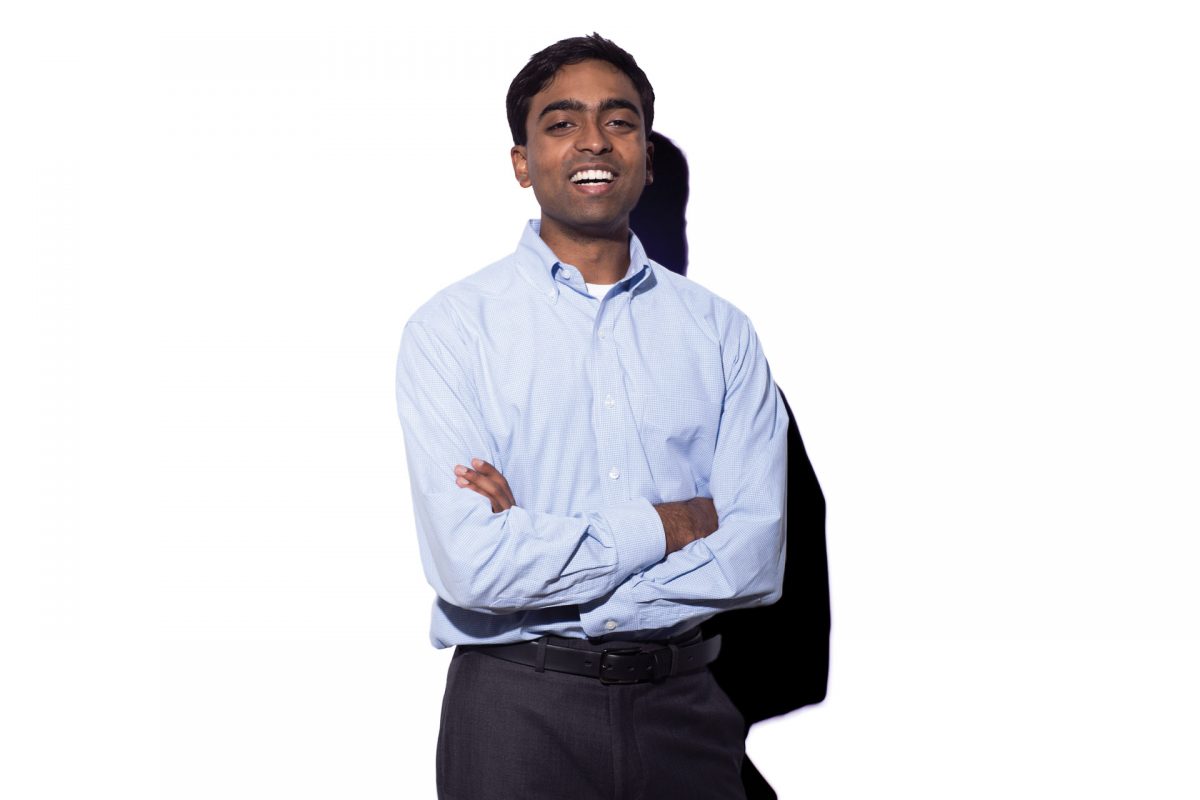Sai Gourisankar is a Plan II Honors and chemical engineering senior from Fort Worth, Texas. He is a recipient of the 2015 Rhodes scholarship, as well as being a Dedman distinguished scholar, a Goldwater scholar and an Astronaut Foundation scholar.
What does winning a Rhodes scholarship mean to you?
It enables me to study at Oxford University in Britain with some of the brightest minds in the world. It means connecting with students who bring diverse perspectives to study not only the sciences, but also the humanities at the highest levels. I’m excited by the opportunity to learn from and contribute to a community of scholars, all of whom share a commitment to “fight the world’s fight,” in Cecil Rhodes’ words.
Who did you tell first?
I told my parents first, then my faculty advisers and finally close friends. My parents were extremely proud of me — somewhat to my embarrassment, they told all their friends and our extended family in India. My dad, who I told first and is normally very stoic, actually cried.
What are you most proud of from your time at UT?
In my research group we are engineering nanotechnology to target cancer cells for diagnosis and therapy. Our research could lead to a new paradigm of care in which earlier tumors are detected more effectively, leading to lower costs as well as less damaging treatment.
Our team includes chemical engineering Professors Tom Truskett and Keith Johnston, as well as Dr. Oleg Gang at Brookhaven National Labs and biomedical engineering Professor Kostia Sokolov at MD Anderson.
Can you tell us about your published work?
I’ve co-authored four publications. The first was on a different project in high school, in the New Journal of Chemistry. We developed an environmentally friendly synthesis of an organic solvent. The next three were on the nanotechnology project I described earlier: one in ACS Nano, one in Journal of the American Chemical Society and one in Journal of Physical Chemistry C.
How do chemical engineering and liberal arts complement each other?
The liberal arts curriculum allows me to pursue passions outside of engineering, such as history and economics. These subjects give context to the scientific work done within engineering. The Plan II program has made me more open-minded about the role of science in society. It introduces me to ideas, interests and passions that I can pursue throughout my life. Chemical engineering gives me technical competency to physically make something useful for society.
What are your plans after graduation?
At Oxford, I’ll be studying mathematics and physics for two years. After that, I want to return to the U.S. and pursue a graduate degree in chemical engineering to be used toward an academic research career.
I’m also part of Texas 4000, and I’ll be biking from Austin to Alaska this summer to raise cancer awareness and money for cancer research initiatives.
What advice would you give to incoming students?
Even as great as our academic departments at UT are, coursework can only teach you so much. It’s more important to learn how to learn than merely to seek knowledge.
